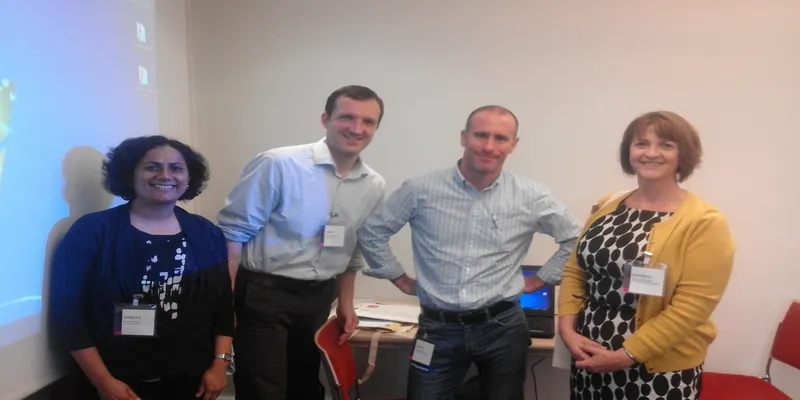Can entrepreneurship be learnt? Lessons from an academic conference on entrepreneurship
Let me get straight to the answer, which is “Yes.” But just like everything that is complex, there is a big qualifier; “it depends.” It depends on what one defines entrepreneurship as. It depends on one’s social and economic conditioning value systems, personalities, and motivations. Everyone has a favourite character in mind and pop culture often paints a very “heroic visionary” image of one who saw something and risked everything to achieve it.
The result, often, is many trying to emulate what they think are the right ways and losing sight of realities. There is also a lot of focus on tools such as business canvases, business plans, Excel sheets, growth hacking methods, pitch practices, and funding. While all of this is useful, something more fundamental is missing.

Meanwhile, due to good karma and the application of “crazy quilt,” one of the iKen graduates who is now an anchor decided to academically document the process (recording the sessions and measure the outcomes vs objectives). This got codified into an academic paper and even got accepted into a conference on entrepreneurship conducted by ISBE to be held in Paris (http://isbe.org.uk/).
And it turns out there is whole pantheon of academics worldwide studying this very subject and this year’s theme was just that. “Entrepreneurship in a context,” which is, “ The entrepreneurial process is largely embedded in a given social and economic context. By way of example, we all know that entrepreneurial processes in developing countries — or countries in transition — are quantitatively and qualitatively different from what can be observed in developed countries. Consequently, entrepreneurship can be studied in different types of economic and cultural contexts and at multiple levels (individual, firm, industry, region). In such diversity, we would like to address and discuss key questions.
1) The training, education, and preparation of entrepreneurs. How can the entrepreneurs of the future be better trained and prepared?
2) The environment of entrepreneurship and the understanding of the role played by context-sensitive factors that shape the evolution of the entrepreneurial processes. How can we make the environment more favourable and efficient for entrepreneurship?
3) Entrepreneurial activity and its behavioural, productive, and performance-related dimensions. How can we better understand and measure the actions taken by entrepreneurs that do not always produce positive consequences and results?
4) How can entrepreneurship shape, and be shaped to create, social justice?
It was an onslaught of academic concepts — about 200 papers from 30 countries — only one of which (ours) was from India. It was a melting pot of policy makers, incubators, academics, and pracademics (practitioners who are also academics) going in-depth about policy and creating and measuring ecosystem and business enablement.
Given my track, I largely stuck to “Practitioner Learning.” The paper I presented generated a lot of interest and agreement, especially from academics focusing on “Reflexive Studies.” Apparently, reflexivity refers to circular relationships between cause and effect. A reflexive relationship is bidirectional, with both the cause and the effect affecting one another in a relationship in which neither can be assigned as causes or effects. To me, this explained a lot about how stories in entrepreneurship are told and listened to.
Ultimately, apart from being food for thought, the conference reinforced what we at iKen do, that is to provide an environment for learning that acknowledges the stories but does not focus on the path, letting the entrepreneur focus on his/her realities.
Also “Eiffel” is name of the mountain region in Germany the sir name Gustav’s family informally adopted. It is not his real Sir Name. Did you get the gist of the story in this last line?
(Disclaimer: The views and opinions expressed in this article are those of the author and do not necessarily reflect the views of YourStory.)







